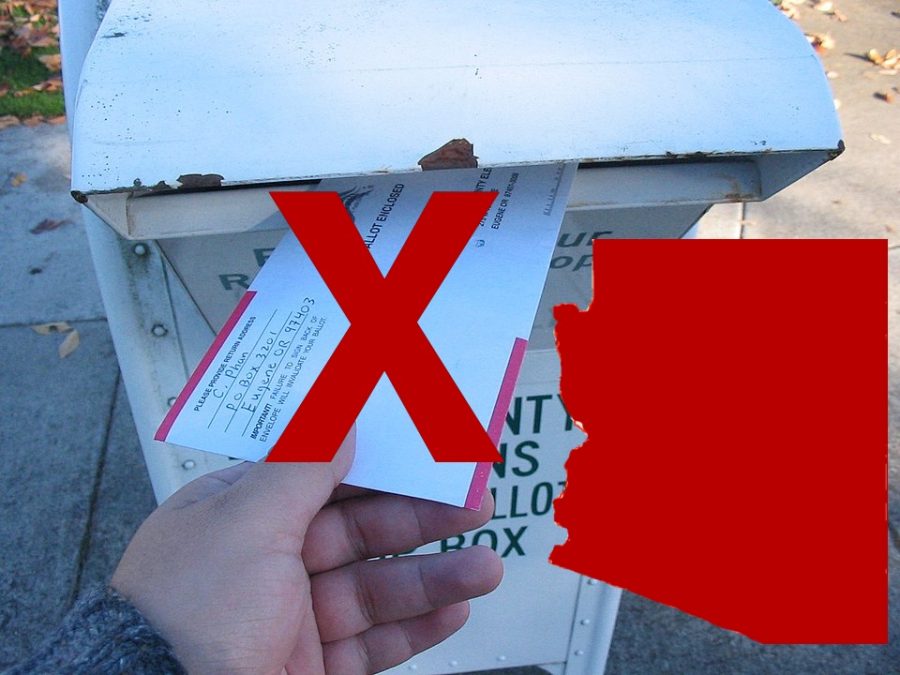Following the Voting Rights Act (VPA) ratification in 1965, American democracy has made great strides in increasing general voter turnout and diversity.
In 2013, the Supreme Court annulled Sections 4 and 5 of the VPA. These sections required Senate approval of new voting laws in states with a history of racial discrimination in voting laws.
This caused a wave of laws to emerge that increased voting difficulty in the states that the VPA specified, such as Georgia and Texas.
Despite the efforts to restrict voting since 2013, voting rights activists managed to get out record numbers of minority voters in the 2020 presidential election, sending President Joseph Biden to victory.
In response to decades-old Republican strongholds like Georgia and Arizona turning blue for Biden, Republicans are introducing bills even more restrictive than the post-2013 laws.
These bills often include new methods of having voters cast their ballots in person rather than through the mail, such as a sizable reduction or elimination of drop boxes and no-excuse absentee voting, a reduction of the early voting period, and limiting mail-in voting. One Arizona bill allows the state legislature to choose which presidential candidate gets the state’s electoral votes.
Kenneth Mayer, an expert on voting and elections at the University of Wisconsin-Madison, is concerned about the implication of the Republican response to Biden’s victory.
“The typical response by a losing party in a functioning democracy is that they alter their platform to make it more appealing,” Mayer said. “Here, the response is to try to keep people from voting. It’s dangerously anti-democratic.”
Mayer isn’t the only one who holds this view. Many experts are questioning the justification and purpose of these bills.
Naturally, Democrats are in staunch opposition to these legislations, and the votes in state assemblies are split along party lines. Democrats in Arizona have challenged bills eradicating no-excuse absentee voting and Sunday voting, saying that the bills violate Section 2 of the VPA.
This section declares bills negatively impacting a race’s ability to vote as unconstitutional.
Supreme Court Justice Elena Kagan used hypotheticals to display how the new bills violate Section 2 and why Section 2 should exist in response to Arizona’s lawyer, Michael Carvin, who argued that states should have complete control over voting.
“If a state has long had two weeks of early voting and then the state decides that it is going to get rid of Sunday voting on those two weeks, leave everything else in place, and Black voters vote on Sunday 10 times more than white voters, is that system equally open,” Justice Kagan said.
Democrats have made many of the same arguments as Kagan, positing that while the bills don’t say they target minority demographics, in practice, they do.
While Democrats are not the only ones who object to these new measures, with data from the last few presidential elections showing that many Republicans vote from home or through drop boxes, most of the opponents to these bills are indeed Democrats
Many Republicans, on the other hand, support some 253 bills being pushed in 43 states, according to the Brennan Center for Justice.
Republican lawmakers say that these bills are not discriminatory and are designed to decrease voting fraud and make elections more secure.
Georgian House Representative Kasey Carpenter believes that Democrats are overreacting to the measures state legislatures are enacting.
“I think what you’re seeing is a measured approach,” Carpenter said.
People who are finding their preferred voting methods restricted or removed don’t see these bills in the same light, though. Many are concerned about what these bills could mean for America.
Carlmont student Rahul Ramamurthy, a member of two minority groups, is also concerned about the precedent restricting voting methods may set for our democracy.
“In regards to these bills, if they get passed, it will be a very sad thing,” Ramamurthy said. “We will have violated our constitution and subverted our democracy.”
























Frankie Dosen • May 18, 2021 at 8:13 pm
I continue to be impressed with the clarity and mature writing of these two Sophomores. I taught Journalism at an All Girls High School in my career and really find this writing very very good. I live in Canada but really appreciate having the articles emailed to me. Keep up the good work boys and Kudos to their teacher too, You are doing a great job. It is so very important to teach the importance of unbiased objective Journalism.